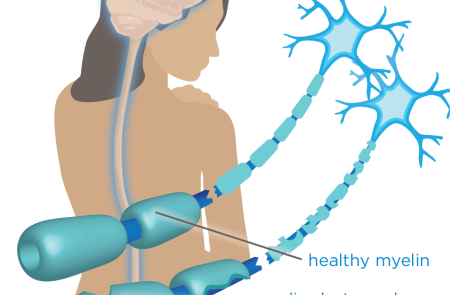
“Keep Asking the Next Question:” Lessons Rhodes Scholar Shubham Bansal Learned at BRI
Read ArticleBlog Posts focused on: Lab Bettelli; Estelle Bettelli, PhD

What Do T Cells Like to Eat? The Answer Could Stop Multiple Sclerosis
Cells, like people, get their energy from sugars, proteins and fats. Many cells have highly specialized diets — think of some loving kale while others prefer Texas BBQ.

Do MS Treatments Make Vaccines Less Effective?
This issue of vaccine efficacy has taken center stage in light of the pandemic. A BRI team led by Estelle Bettelli, PhD, and Yevgeniy Yuzefpolskiy, PhD, recently made key findings about how three different medicines for multiple sclerosis (MS) impact response to COVID-19 vaccines.

Taking on Multiple Sclerosis
Dr. Bettelli’s team develops sophisticated MS models to investigate its mysteries and pursue innovative therapies. We recently asked her for an update on BRI’s MS progress.

Driven To Teach: From Lab to Lecture Hall
Did you know that BRI researchers aren’t just researchers? They’re teachers, too. In fact, 12 BRI researchers serve on the University of Washington (UW) faculty, two of which also teach at the Chiba University School of Medicine in Japan.

Exciting Advances in Multiple Sclerosis Research
This research update is on a variety of studies that BRI is conducting or collaborating on with other institutions. They are tackling various scientific and immunologic questions that explore innovative ways to fight MS from the lab to clinical studies.

Basic Research Maps Route to Medical Advances
“You can’t lay tracks until you know where the train is going,” says BRI Director Gerald Nepom, MD, PhD. “In immunology research, that translates into discovering what the immune system cells are doing and identifying their different roles.

Hopeful Progress in Multiple Sclerosis Research
Multiple sclerosis (MS) affects more than a million people worldwide including 15,000 in the Northwest. It affects women twice as often as men. MS is the most common medical cause of neurological disability in young adults ages 20-40. Usually MS happens in multiple attacks.


